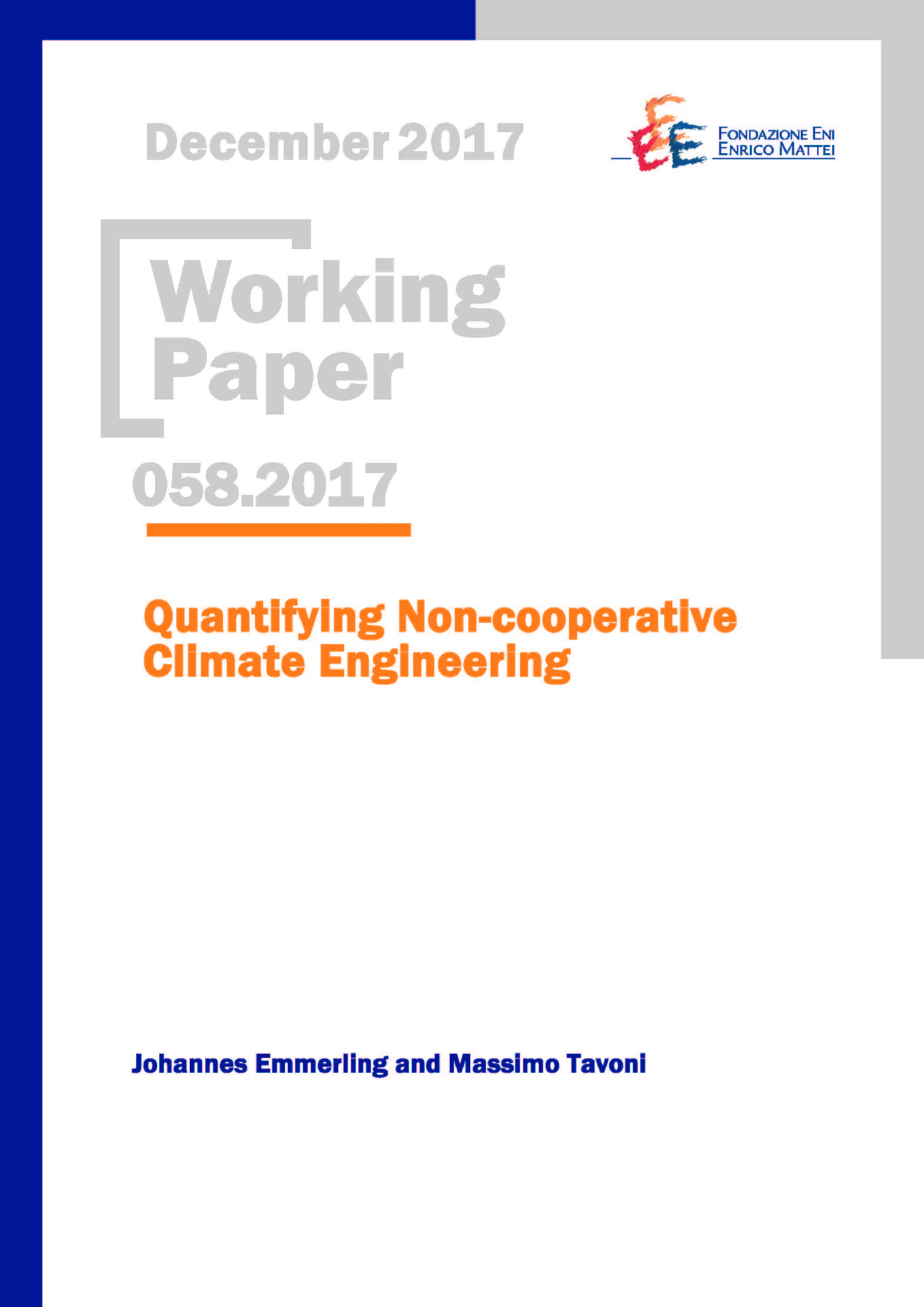Quantifying Non-cooperative Climate Engineering

14.12.2017
H41, Q54, Q58
Climate Engineering, Climate Governance, Free Driving, Climate Policy
Mitigation, Innovation and Transformation Pathways
Massimo Tavoni
The mismatch between actions to combat climate change, which are based on voluntary national initiatives of limited effort, and the recognition of the importance of global warming is growing. Climate engineering via solar radiation management has been proposed as a possible complement to traditional climate policies. However, climate engineering entails specific risks, including its governance. Free driving, the possibility of unilateral climate engineering to the detriment of other nations, has been recently proposed as a potentially powerful additional externality to the traditional free riding one (Weitzman, 2015). This paper provides the first quantitative evaluation of the risks of free driving. Our results indicate that in a strategic setting there is significant over-provision (by almost an order of magnitude) of climate engineering above what is socially optimal, resulting in a sub-optimal global climate. Regions with high climate change impacts, most notably India and developing Asia, deploy climate engineering at the expenses of other regions.
***
Suggested citation: Emmerling, J., M. Tavoni, (2017), ‘Quantifying Non-cooperative Climate Engineering’, Nota di Lavoro 58.2017, Milano, Italy: Fondazione Eni Enrico Mattei
